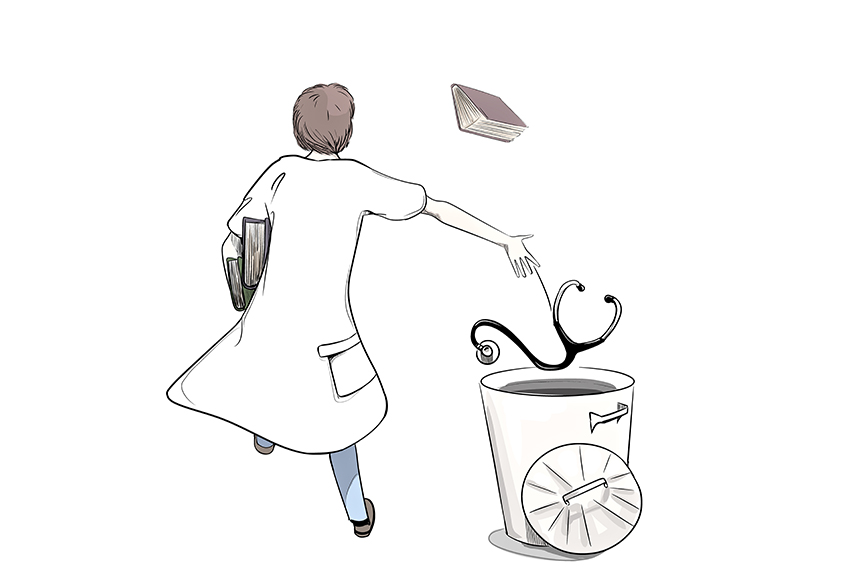Forty-one hours of prerequisites, volunteering, shadowing, Medical College Admission Test studying — sound familiar? Lesley Riley, director of the Health Professions Office at UT, said the curriculum is tough in order to match the demands of medical school. This makes the path of pre-med particularly difficult for students, but medical leaders say there’s a reason for every struggle.
Yousef Nofal graduated from UT with a bachelor’s in biochemistry, and is now in his first year at UT’s Dell Medical School. Nofal said the stress of GPA maintenance did not desperately weigh on him, but he knew it was a factor in his medical school admission.
“It’s not like I felt like I had to keep a 4.0 every single semester … but in the back of your head, you know that you do have to work hard in order to at least get a certain respectable GPA,” Nofal said.
Emily Faries, a neuroscience freshman, is planning on pursuing medical school and said she still stresses about grades.
“I definitely feel pressure to maintain that perfect GPA … especially on this campus because there’s so many people in pre-med, you really have to be in the top of the top,” Faries said.
Stephen Smith, the associate dean for student affairs at Dell Medical School, said while GPA and MCAT scores are important, Dell is more interested in students showing their creativity, individuality and communication skills.
“Academic ability is in the mix, but it’s by no means the criteria,” Smith said.
Mary Elizabeth Bennett is currently a second year medical student at Dell, and she said she took a path different from most. After completing a bachelor’s degree in creative advertising from Southern Methodist University and a master’s in advertising from UT, she decided to go to medical school.
In one summer, with two toddlers, Bennett took three science courses and two labs to pursue her dream.
“Having three kids and now being in medical school … that was the hardest summer of my life and I got the least sleep that I’ve ever gotten in my life,” Bennet said.
Bennett said she thought about dropping many times, but with tutoring, study groups and familial support, she never fell below a low A.
“I literally felt like if I made a B that would be the difference between me getting into medical school and not getting into medical school,” Bennett said.
Unique from other medical schools, Dell reevaluates their prerequisites every year and tries to make the requirements as minimal as possible while still enabling students to succeed, Smith said.
Nofal said while the pre-med prerequisites prepare you academically, they teach you more than just the science.
“While you’re in it, you’re thinking, ‘This is so stupid,’ but then when you look back you realize that there’s kind of a hidden curriculum,” Nofal said. “The whole idea of (organic chemistry) isn’t to know how to do all these different types of reactions … that idea of problem solving is really important when you go to medical school.”
Bennett said the Health Professions Office and a positive attitude helped her through pre-med, but there are other paths to a fulfilling career. If you take some time to explore other options, you can always come back, she added.
“There are plenty of other paths out there … if it’s making you miserable, there’s still time in your life,” Bennett said. “If you really truly love medicine and you want to serve in that role in society, your opportunity will come.”















